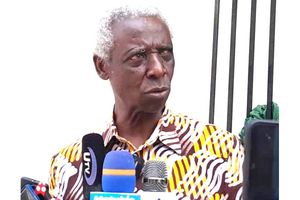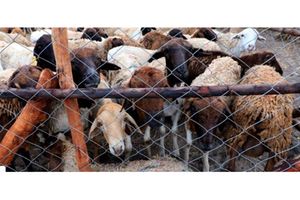Ethiopia proposes second delay of national election

A truck decorated with a Prosperity Party banner and Ethiopian national flag is seen in Addis Ababa, Ethiopia, on May 7,2021 during the electoral campaign rally for the general elections.
What you need to know:
- William Davison of the International Crisis Group says a peaceful election in the conflict-ravaged horn of Africa nation seems increasingly unlikely while unresolved grievances persist.
Ethiopian authorities have proposed delaying a previously postponed national poll over low voter registration and logistical issues.
At a consultation forum with political parties on Saturday, the Ethiopian Electoral Board announced that the 6th General Election will not be conducted on the scheduled date.
The reason, it said, was that voter registration and other "activities" had not been completed per schedule.
The board asked the dozens of political parties to delay the election by at least three weeks. However, it is not yet known if an agreement has been reached among the political parties.
Last year, Ethiopia postponed a parliamentary election due to the Covid-19 pandemic.
Ethiopians were supposed to vote on June 5, 2021 to elect a new Parliament as well as regional and municipal councils.
Peace increasing unlikely
Political analysts doubt that Ethiopia would hold peaceful elections.
William Davison of the International Crisis Group says a peaceful election in the conflict-ravaged horn of Africa nation seems increasingly unlikely while unresolved grievances persist among nationalities and ethnic groups.
"The big problem is the level of violence we're seeing across the country at this time, which looks like it is increasing in the run-up to the elections in early June," Mr Davidson told DW.
This applies particularly to the regional states of Benishangul-Gumuz and Oromia, the latter which is the largest of Ethiopia's nine administrative regions, and where insurgent activity has increased.
"It may prove difficult to hold elections in areas where the security situation is fragile,” Mr Davidson said, adding violence is prone to escalate through increased attacks by ethnic militias.
"There are also logistical issues. More than 56 million citizens eligible to vote are not registered to do so.”
Oromo, Tigray conflicts
According to Mr Davison, the electoral board was initially unable to carry out voter registration in western Oromia.
Security issues also led to massive problems in Benishangul-Gumuz.
On Tigray, Mr Davidson said: "There is a civil war going on in Tigray. There is a state of emergency, so there will be no elections in Tigray.”
He added: "There have also been delays in voter registration in the Afar and Somali regions, where there was recently a territorial dispute between regional paramilitary forces."
As a result of the volatile situation, some opposition parties including the powerful Oromo Federalist Congress (OFC) and the Oromo Liberation Front (OLF) have boycotted the ballot.
Opposition parties accuse the government of arresting their leaders, intermediating between their members and shutting down their offices.





